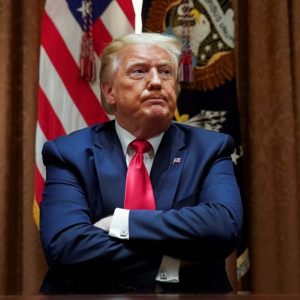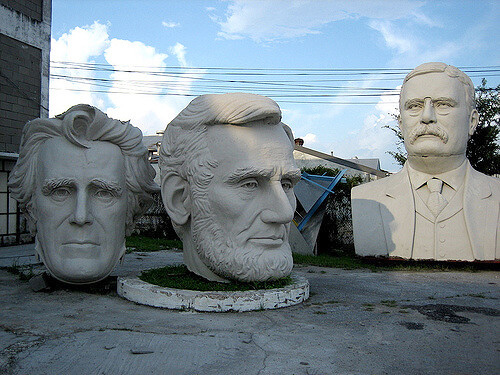The trouble with governing from myth rather than fact is that you break that which isn’t broken and end up with the very opposite of what you set out to achieve.
The personnel decisions of the Trump administration are driven by the myth — repeated throughout the campaign and earlier in conservative circles — that the bureaucracy is an extra branch of government, powerful, left-leaning and determined to impede change.
Presidents, including political opposites Jimmy Carter and Ronald Reagan, have run against Washington, and then grew the government. It is easy to say that the employees of the government are the problem; that fits with the myth.
The government workforce has no lobby, and its unions are limited in their power by law. They are subject to castigation by myth and have to take it in silence.
The myths about the bureaucracy are just that, myths. But they stifle good government. If you are told long enough that you are the problem, you might be tempted to act that out.
The government may well need trimming. It does appear to be overstaffed, but it is something that needs a scalpel, not a saw.
The Trump administration’s invitation to federal employees to accept a buyout or face uncertainty will be counterproductive.
Anyone who is familiar with the idea of reducing the workforce with buyouts knows what happens: The best and ablest leave because they can prosper elsewhere; the dross remains.
It won’t so much reduce the federal payroll by tens of thousands of workers as it will scour out its talent. Brains out, time servers in.
I am told by people in the government, work has already come to a standstill as demoralized workers debate their options. The government just got less efficient, its productivity went down.
This assault followed another de facto attack on the most productive in government: the one-size-fits-all return-to-office order. By and large, it might be better if more employees worked in their offices, but not all.
Again, there is a talent factor.
Devoted scientists and engineers — and the government employs tens of thousands of them in places like the national laboratories, NASA, NIH, USDA, NSA and throughout the civilian-military.
In the age of computers and artificial intelligence, these knowledge workers are the aristocrats. Many are more productive at home and have built their lives in recent years working there two or more days a week.
The return-to-office order is disruptive and counterproductive. The workplace has changed, and we have changed. We have technologies we didn’t have even five years ago.
The challenge has to be to find new ways of managing remote work, not banishing it.
The trouble with the administration’s return-to-office order is that one size doesn’t fit all. There are seldom simple solutions to complex problems unless a solution is embraced that is more radical than useful. You can cure tooth decay by pulling out all the teeth and fitting false ones, but that is hardly a solution.
Any officer knows that the troops he has are the troops who will save his life or otherwise. They are a general issue, but they are the fighters he or she has at their back. So, too, with the federal workforce.
A Cabinet secretary once told me during an interview that his staff was the “lame, the blind and the halt.” When I got back to the office before writing a line, his office called to implore me not to use the quote.
Criticizing staff is a poor way to get the best out of them: It is leadership in reverse.
Day in and day out, a country is run by its civil service; it is the outfit that delivers or falls down. It isn’t a deep state, a malevolent, secret organization, cherishing power, out to humiliate its political masters. It is also not a monolithic whole, organized and equipped with motives of its own.
It is a large, sometimes efficient — and often less so — organization of individuals: the silent backbone of any country.




